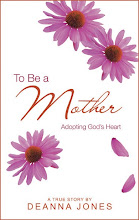I pulled this info from the the website ABORTION FACTS. After the abortion I had I felt relieved and simultaneously devastated. There are studies that show that it is possible to experience these two conflicting feelings simultaneously post abortion. I also was suicidal and honestly was not prone to those feelings prior to the abortion. I couldn't cope afterwards and eventually quit my dream job at Disney because i was so depressed I just couldn't keep singing happy songs while I felt so devastated. I also developed insomnia. I also had nightmares when i did sleep. Here are some answers to some questions regarding post abortion symptoms and feelings. Many women think they are the only ones experiencing these feelings but I was actually text book and had many of the common post abortion symptoms. It is important to note that psychologists are told that this syndrome is not a fact. And most psychologists or psychiatrists will try to work the woman to believing that she shouldn't feel depressed or guilty but should learn to accept that this was her right and she did nothing wrong.....or they will prescribe drugs only until she accepts her actions and can "get over" her feelings of guilt by denying she did anything wrong at all.
What is Post Abortion Syndrome (PAS)?
Many women are very ambivalent about getting aborted but do go ahead. Those around her told her (and she told herself) that it wouldn’t bother her. When symptoms occur, she tells herself it can’t be the abortion causing them, and then into play come her two major psychological defense mechanisms:
Repression and Denial.
For some this works successfully. For others it shades off to manageable distress, to severe and life-changing upset and even to suicide.
There is a delay?
Yes! Her initial response in most cases is a feeling of relief. Then, with repression and denial, she avoids the problem, usually for years —5 years is common, 10 or 20 not unusual.
But then, for some, the negative feelings bubble up and break through. Often the precipitating event is: she has a baby, or a close friend or relative has a baby that she has close contact with. She finds out she is sterile, or other life-changing events.
What are the symptoms of PAS?
Guilt is ever present in many guises, along with regret, remorse, shame, lowered self-esteem, insomnia, dreams and nightmares, flash backs, anniversary reactions. There often is hostility, and even hatred, toward men. This can include her husband, and she may be-come sexually dysfunctional. Crying, despair and depression are usual, even at times with suicide attempts.
Recourse to alcohol or drugs to mask the pain is frequent, sometimes leading to sexual promiscuity. There is also a numbing and coldness in place of more normal warmth and maternal tenderness.
Is this due to religious guilt feelings?
Perhaps in some it is a factor, but most women re-ported on in the early studies were unchurched at the time.
Perhaps they had seen pictures of fetuses?
Again, not most. Most did not know "it" was a "baby" when they aborted.
But I’ve heard that the American Psychological Association says that PAS doesn’t exist.
This group has been strongly pro-abortion, and this definitely colors its thinking. But during the past decade or more, there have been dozens of national conferences on PAS. There are many professional articles and about 15 books adding more and more authentication to its existence and knowledge about it. Further, every one of the almost 4,000 pro-life pregnancy help centers in the U.S. now has found that an increasing percentage of their time is now devoted to treating PAS women.
True, and most are invalid for two reasons:
(1) Timing: Most studies have investigated feelings for only a few weeks or months post abortion when she is still feeling relief that her problem is gone. Since the delay before PAS symptoms intrude is often 5 years or more, these studies are invalid.
(2) Superficiality: Her repression and denial push this deep into her subconsciousness. If the survey is done by questionnaire or single interview, she routinely denies problems. These studies are invalid. Only by lengthy psychological testing and counseling can she often admit to some symptoms, much less tie them to the abortion she so desperately wants to forget.
You mean most studies miss PAS?
But most polls show few emotional problems — only a sense of relief! Yes, but "What women really feel at the deepest level about abortion is very different from what they say in reply to questionnaires." A Canadian study polled a group of women who had previously completed a questionnaire in which they denied having problems from an abortion. One half of this group was randomly chosen for in-depth psychotherapy." What emerged from psychotherapy was in sharp contrast [to the questionnaires], even when the woman had rationally considered abortion to be inevitable, the only course of action." It was demonstrated that the conscious, rationalized decision for an abortion can co-exist with profound rejection of it at the deepest level. Despite surface appearances, abortion leaves behind deeper feelings "invariably of intense pain, involving bereavement and a sense of identification with the foetus." I. Kent et al., "Emotional Sequelae of Elective Abortion," British College of Med. Jour., vol. 20, no. 4, April 1978 I. Kent, "Abortion Has Profound Impact," Family Practice News, June 1980, p. 80
Yes, and two meta-analyses: James Rogers, who carefully examined over 400 published studies, pointed to the almost universal use of "poor methodology and research design" and "grossly substandard power characteristics." He concluded that "the question of psychological sequelae of abortion is not closed." J. Rogers et al., "Validity of Existing Controlled Studies Examining the Psychological Sequelae of Abortion," Perspectives on Science and Christian Faith, vol. 39, no. 1, Mar. 1987, pp. 20-29 49
Another concurred that existing research is methodologically flawed and that women who abort show more negative outcomes than those who deliver their babies. E. Posavac et al., "Some Problems . . . Psychological Effects of Abortion," Psychology & He
Suicide is rare among pregnant women, but much more common after induced abortion. It is never re-ported under maternal mortality from abortion, of course, even though it is causative.
"The suicide rate after an abortion was three times the general suicide rate and six times that associated with birth.... the rate for women following a live birth was 5.9 per 100,000; following miscarriage 18.1; following abortion 34.7." They note that women frequently get short term "post-natal blues after having a baby, but that this rarely translates into suicide, and that the initial stress of having a child is transitional, the over-all effect having a positive effect on women’s health." M. Gissler, Abortion/Suicide Link,Br. Med. J., Dec. 6, 1996
Then it is rare among pregnant women?
In Abortion: Questions & Answers your authors de-tail 5 studies clearly showing this. One comment may suffice: "The fetus in utero must be a protective mechanism. Perhaps women are reluctant to take another life with them when they do this."
How about after abortion?
In the above book your authors also give the findings of Suiciders Anonymous, and that: suicide post-abortion is several times more common than post-delivery. British Medical Jour., 1996
What of Psychosis afterwards?
This has not changed since Dr. M. Sims’ original paper. He stated that, compared to post-delivery disturbances, post-abortion psychoses are much more serious, last longer, and are more likely to recur. They are more often the "hard" cases. M. Sim, "Abortion and the Psychiatrist," British Med. Jour., vol. 2, 1963, pp. 145-148
In Japan, where abortion has been legal and accepted for over four decades, a common custom is to conduct Mizuyo Kuyo services in honor of the god Jizo. This god has been made the patron saint of infants who died of starvation, abortion, or infanticide. Small baby statues, in his honor, are bought and dressed. Then, in a Buddhist Temple, rites of sorrow and reconciliation are carried out.
Does abortion have any negative effects on her other children?
In some cases a definite "Survivor Syndrome" has been demonstrated. Children usually know that mother is pregnant. They also know when she "gets unpregnant." This may cause Survivor’s Syndrome, similar to that of Jews who survived the holocaust. It is an irrational but real guilt at "why was I saved and why were they killed." Dr. Ney has written about this. Dr. Edward Sheridan of Georgetown University has observed also a fear and mistrust of the mother. Originally, a small child, sensing a sibling’s arrival, doesn’t welcome it. "When the baby suddenly disappears, the frightened child may get a warped sense of his own power to ‘will people away.’ Or, if he knows that his mother was an active agent in doing away with the sibling, he begins to fear her." A simple explanation of this was published in: L. Bond, "The Surviving Sibling," Nat’l RTL News, Sept. 25, 1986.
It is also closely associated with child abuse: Dr. Phillip Ney, Professor of Psychiatry at the University of Christ Church, New Zealand, and of later at
the University of Calgary, Canada, while still at the University of British Columbia, published a widely read study of this. His analysis clearly pointed to the fact that abortion (and its acceptance of the violence of killing the unborn) lowered a parent’s psychic resistance to violence and abuse of the born. P. Ney, "Relationship Between Abortion & Child Abuse," Canada Jour. Psychiatry, vol. 24, 1979, pp. 610-620
Yes, but it is not easy. We first must note that only a few doctors are sensitized to the necessary dynamics of treatment. Specifically, most psychiatrists and psychologists aren’t much help, nor are psychotropic drugs. This requires a gradual healing process, and during it she must have ongoing close emotional support from one or several people who do not have to be trained professionals.
As of the late 1990s, the place to start is your pro-life pregnancy help center. They can either work with her themselves and/or will know who can.
Basically, there are five steps to the healing process:
(1) Counter the denial. Bring this back into her consciousness and admit she was a party to killing her own baby.
- She must grieve over her lost child — tears, mourning as for another loved one.
(3) Seek Divine forgiveness. This was not expected but seems essential for almost every woman.
(4) Forgive others. Difficult, again, but some of this is needed to complete the healing and get rid of her long repressed anger.
(5) Forgive herself. Not many get this far, but those who do have real inner peace. What is absolutely crucial at every step in the above is compassionate empathy, support and understanding from one or more persons around her. J. Willke, P.A.S. Five Steps on How You Can Help, Life Issues Connector, Mar. 1996AND I have to add...that there has been nothing that has convinced me more of the power of Jesus than having Him be there through my healing and teaching me to forgive myself by accepting the forgiveness He gave me through His sacrifice....











4 comments:
Great info Deanna, I am going to write a note in my blog to link to this...thanks so much!! love ya...
I pray this post finds its way to the people who need to read it.
Great info! Thanks for sharing and shedding some light. I knew some of it. But not all. Thanks for the education.
I came over from Beth's recommendation. It was nice to "meet" you!
very good info! I did a research paper on this topic years ago and it wasn't widely accepted. But PAS is very real.
Post a Comment